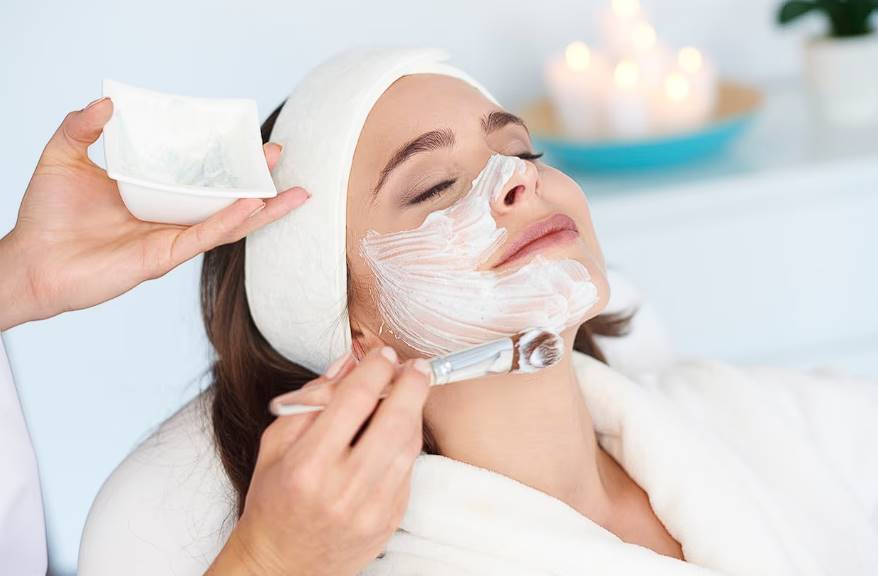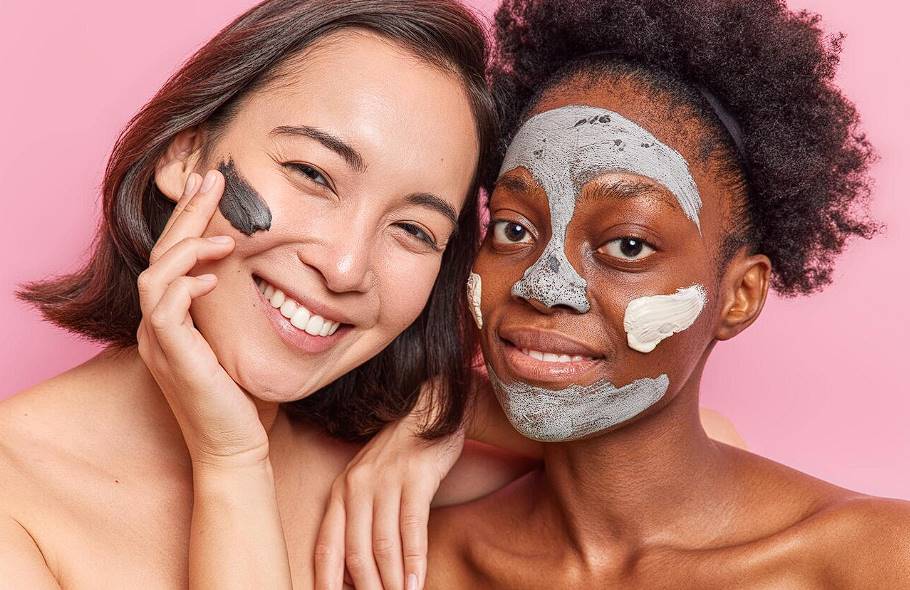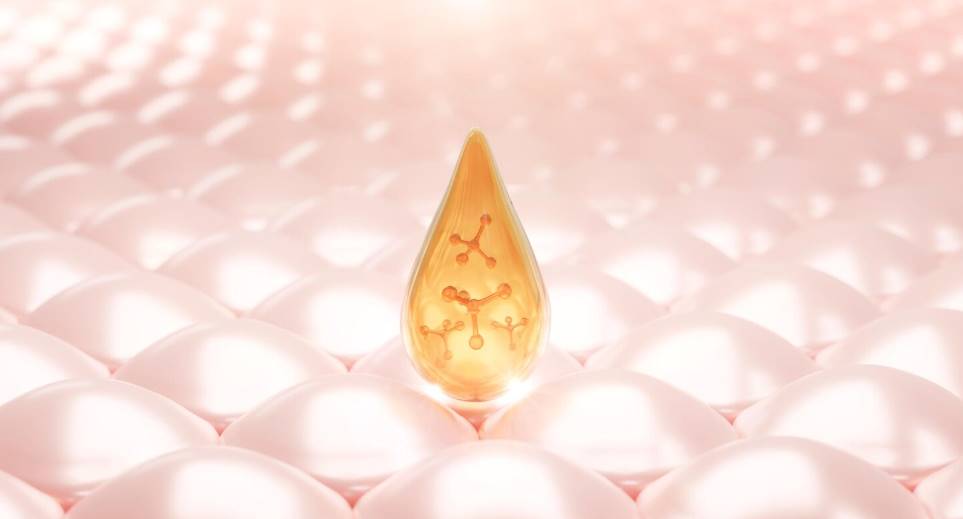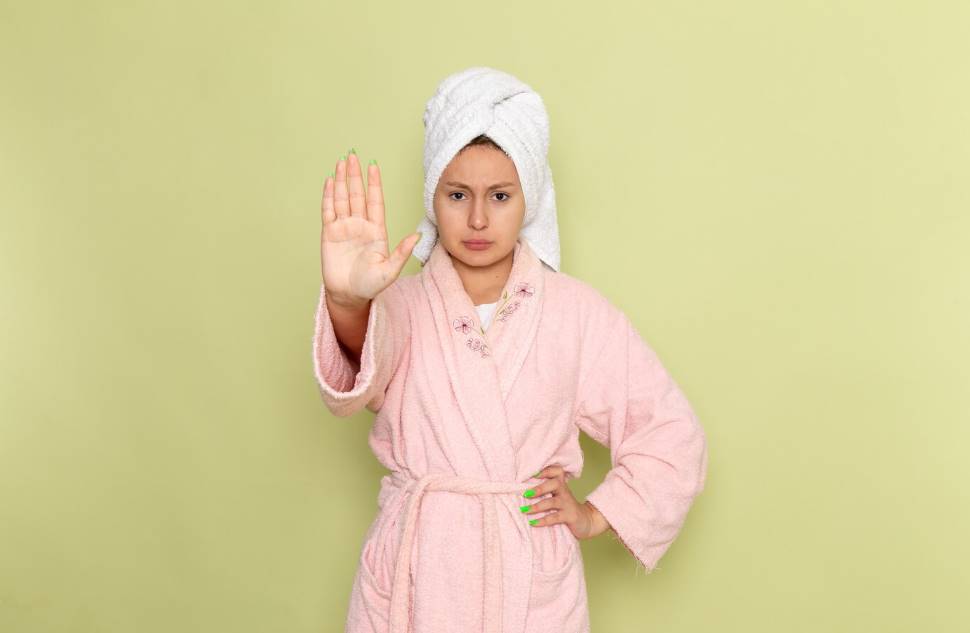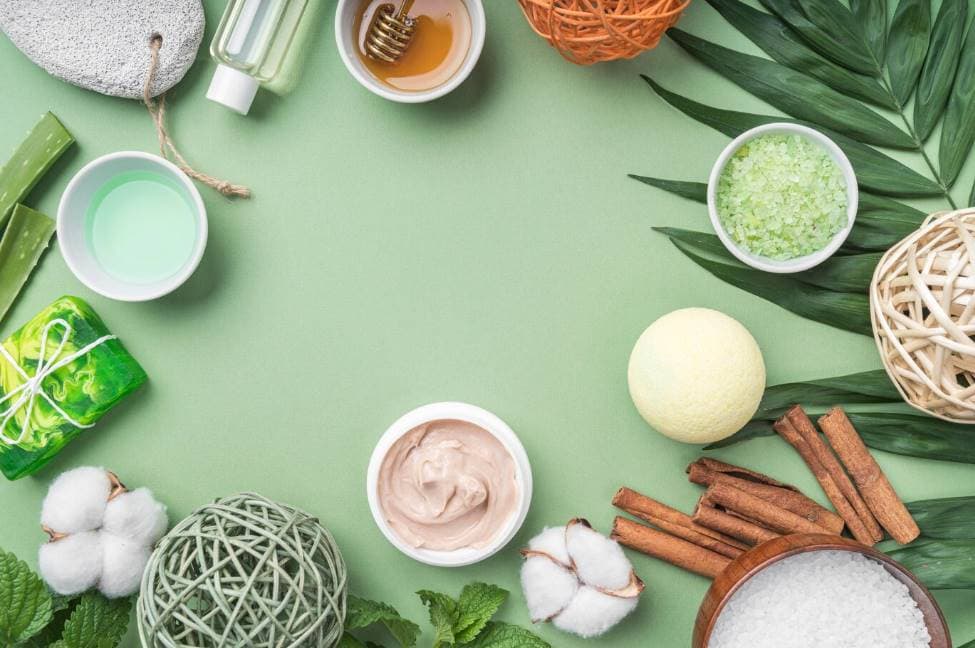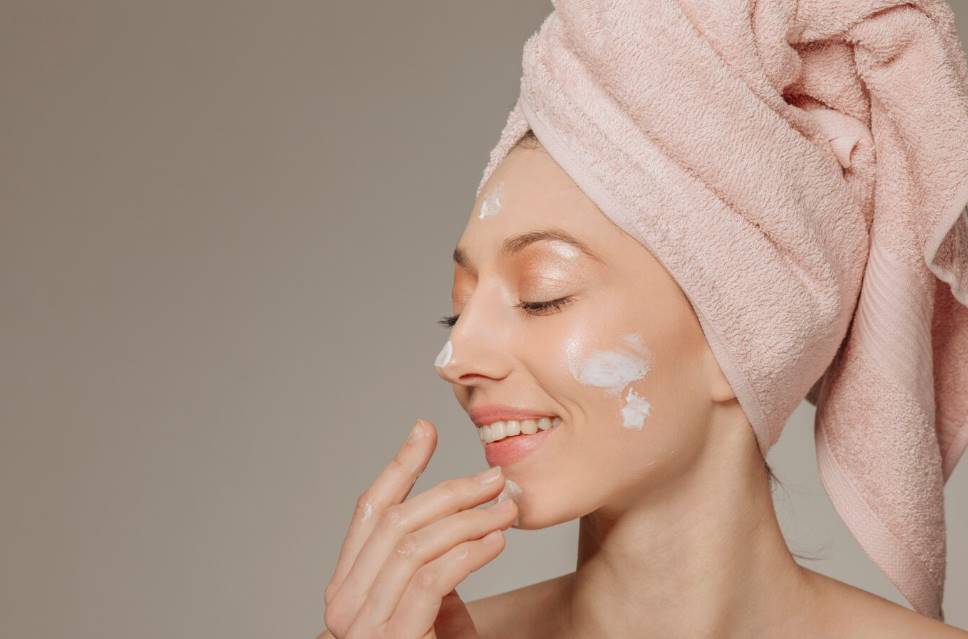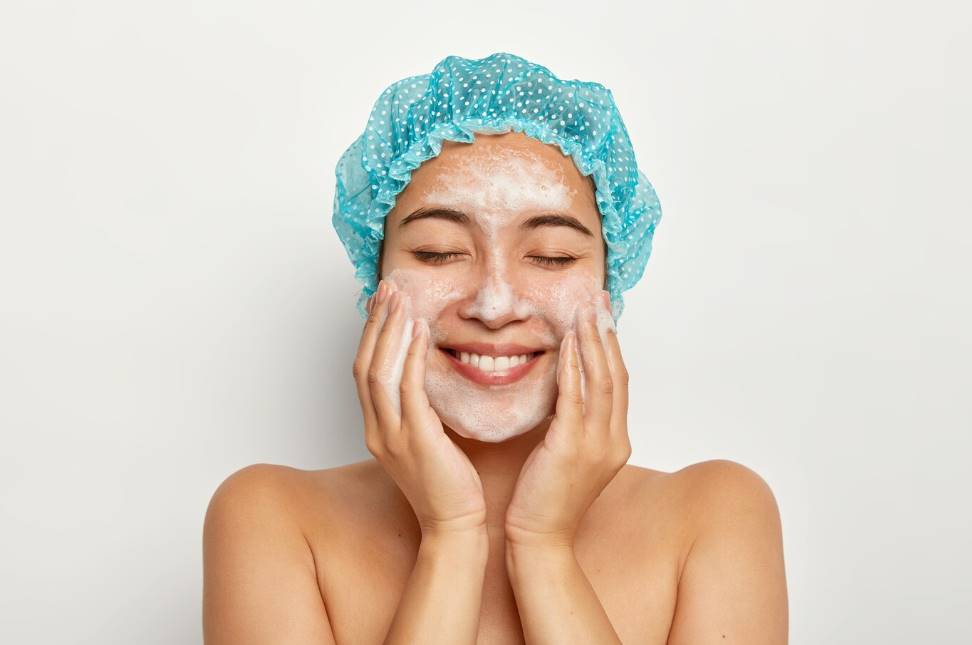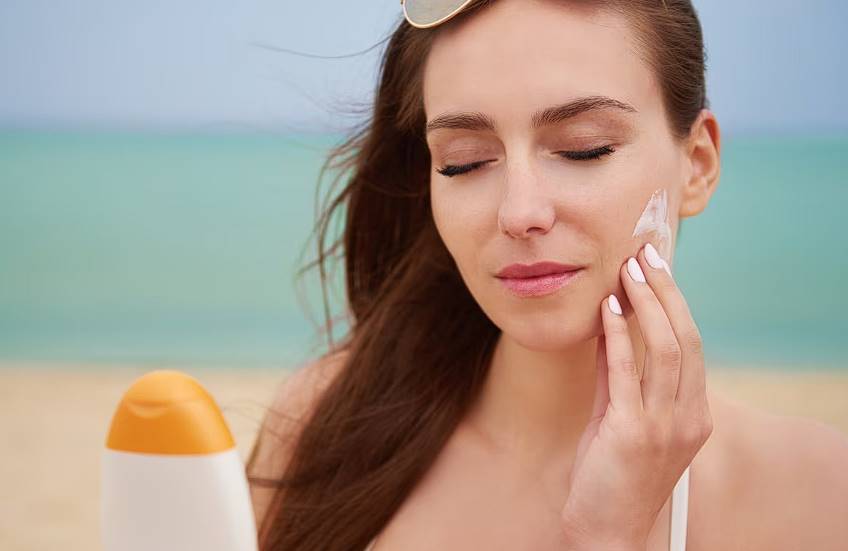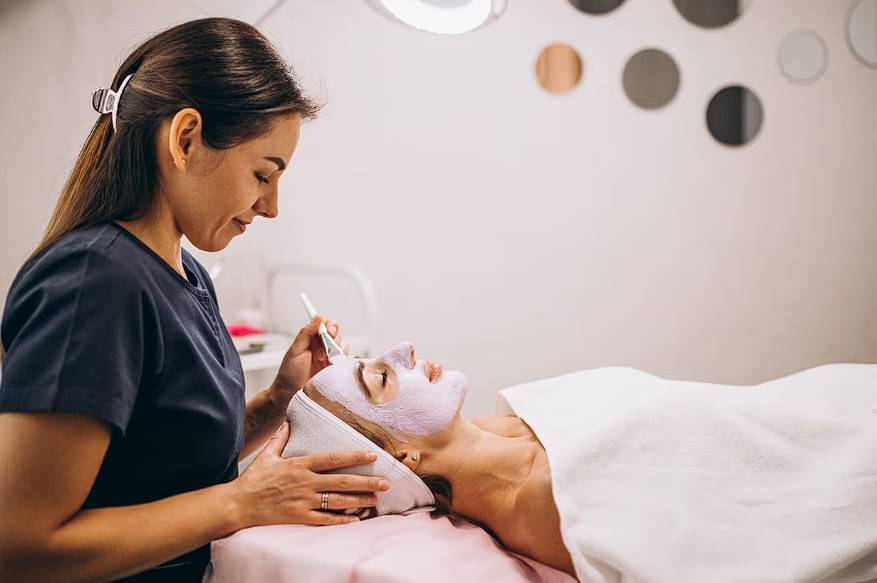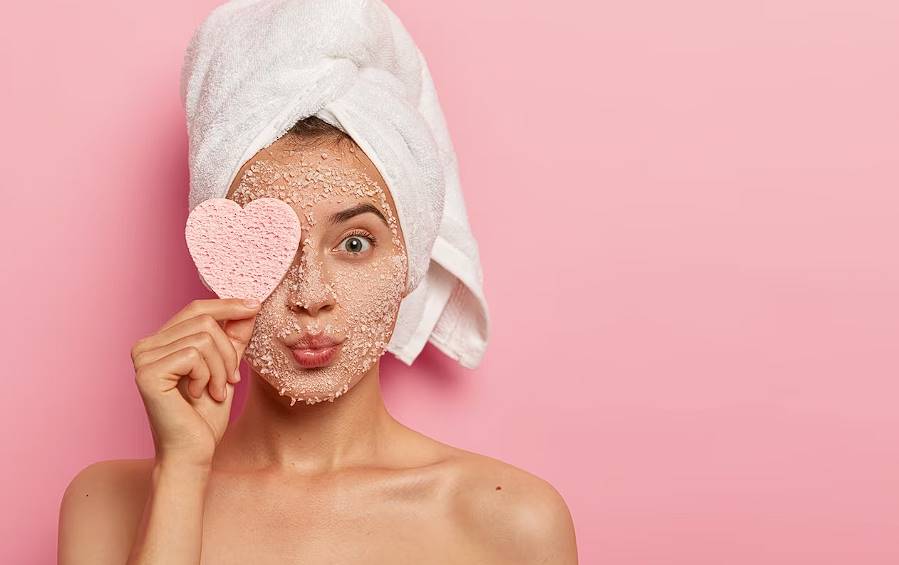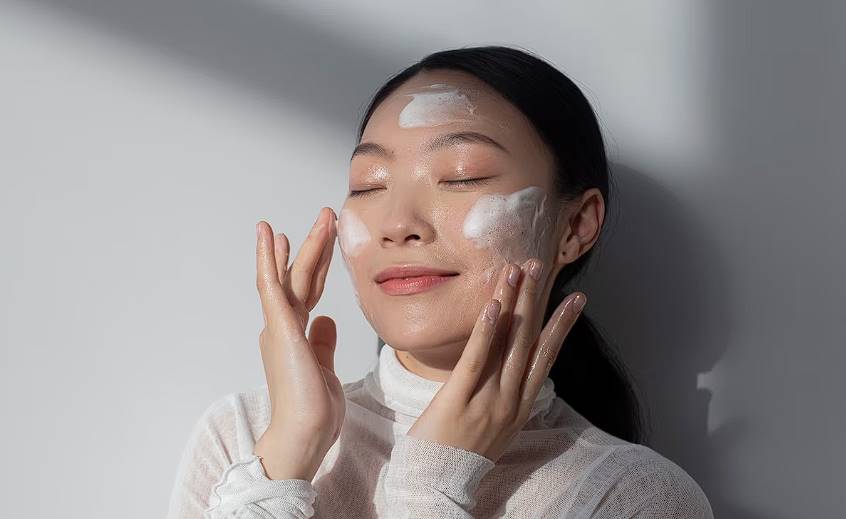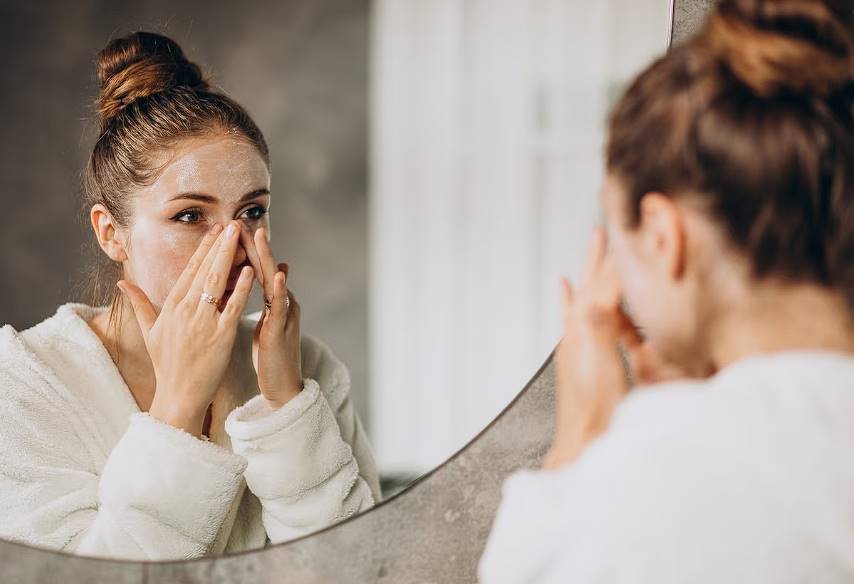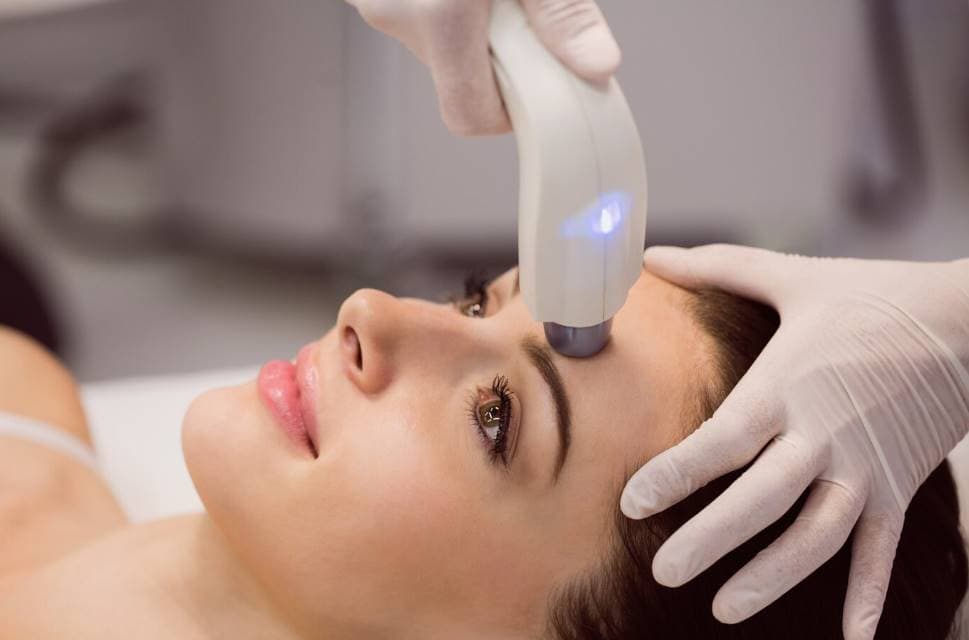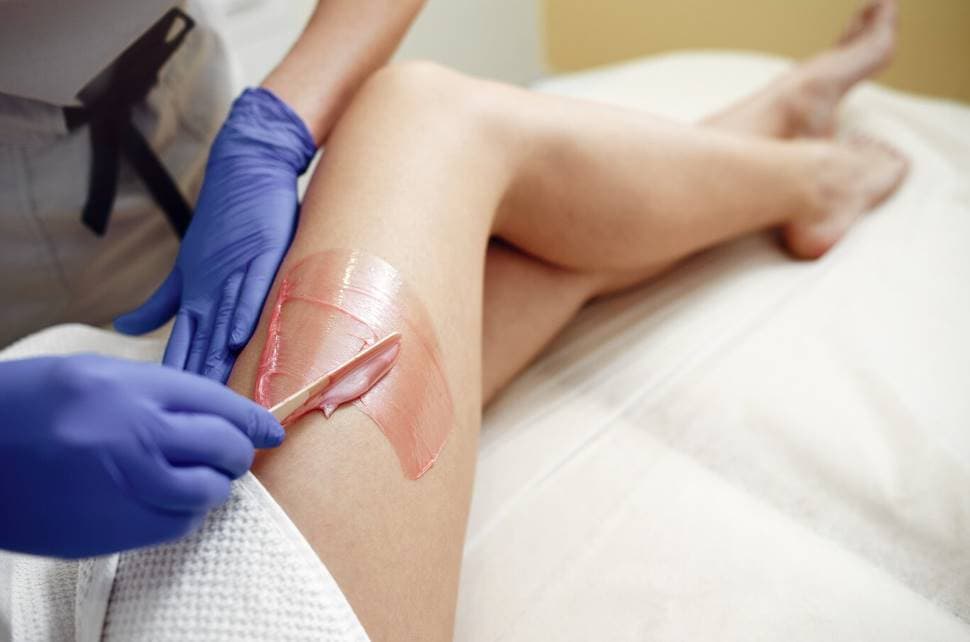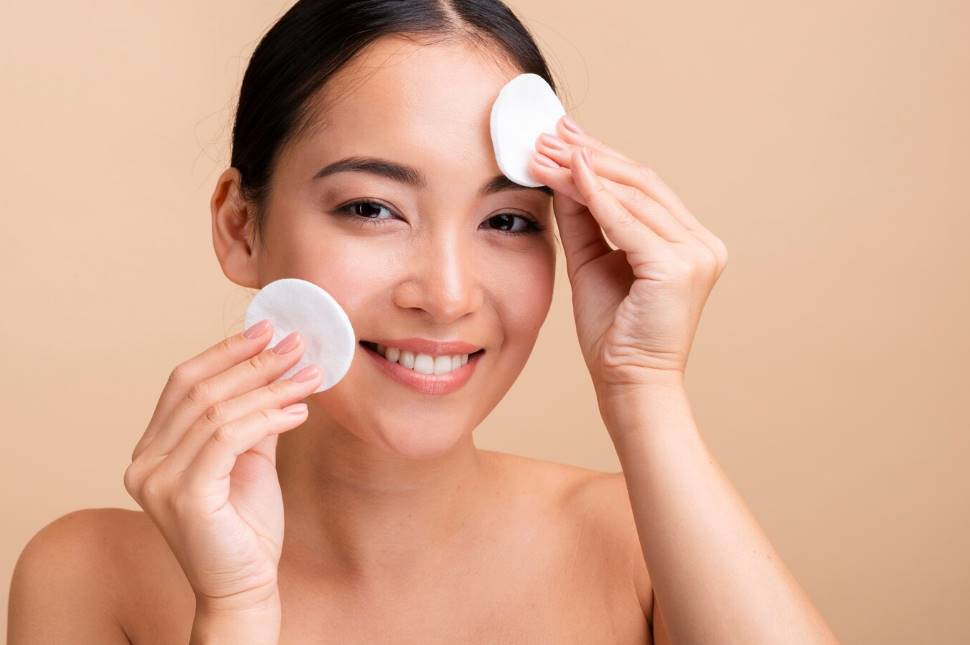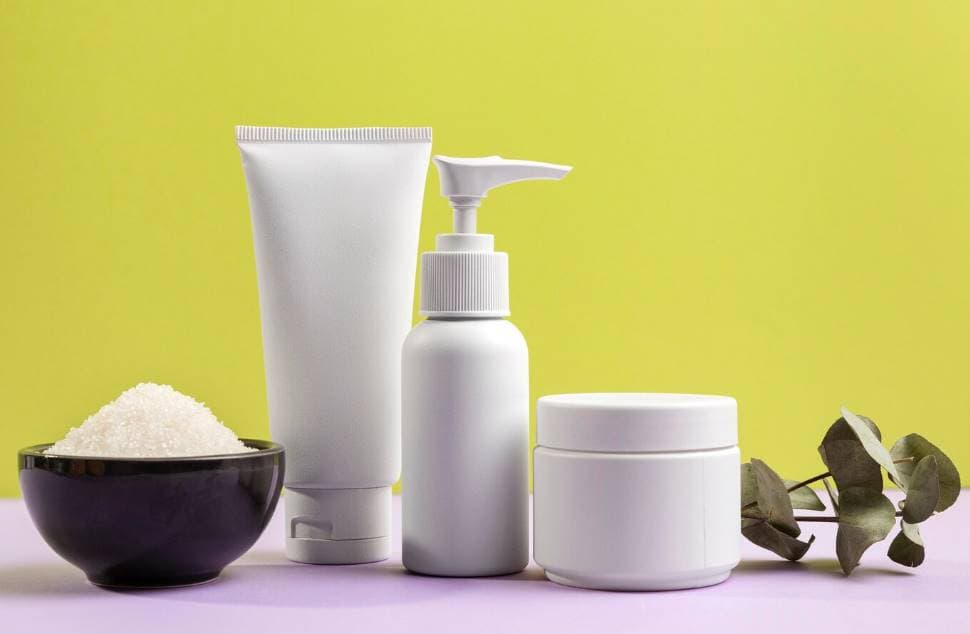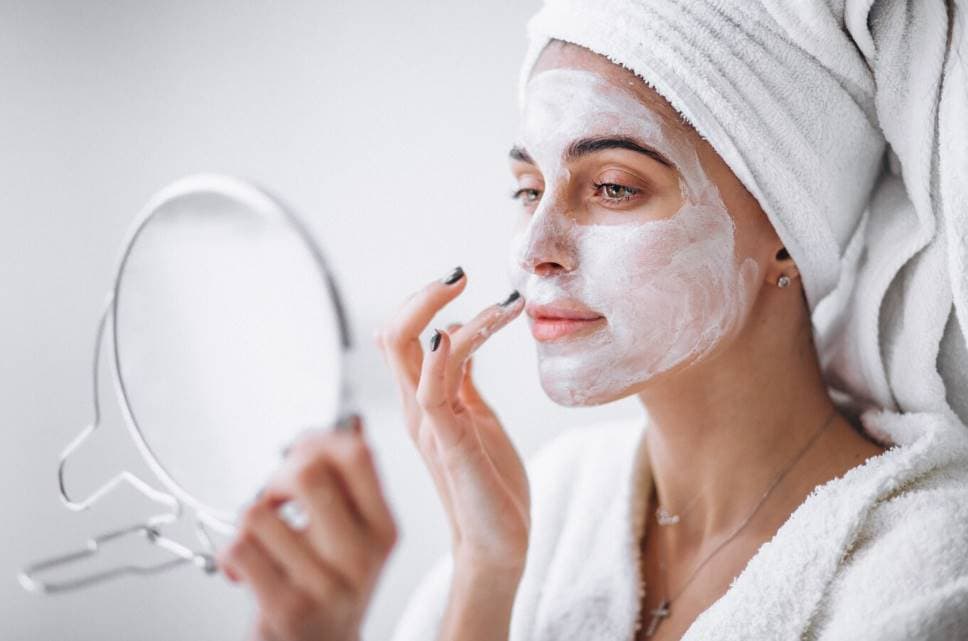It takes more than a random application of cosmetics to start on the path to beautiful, healthy skin.
Knowing your skin type and developing a routine that works for your skin is essential. You need a tailored routine with oily, dry, sensitive, or mixed skin.
This comprehensive manual explores all aspects of skincare, from hydration benefits to the best ways to exfoliate to give you the flawless skin you've always wanted.
Follow along as we examine skincare routines, translate ingredient jargon, and reveal the key to radiant skin for every skin type.
The behaviours you develop over time significantly affect your skin's appearance, so having great skin is not just a matter of genetics.
However, there is a bewildering variety of perspectives on everything from moisturising to UV ray protection, depending on whether you read product reviews or talk to doctors.
Ultimately, how you treat your skin is a matter of preference. To cut through the chase, keep in mind the following.
What Are the Various Skin Types?
All skin types have different needs, and you should treat them accordingly. You can classify your skin type as dry, oily, combo, normal, or sensitive. Knowing your specific skin type is essential to developing an appropriate care regimen.
Dry Skin
Dry skin feels tight and flaky without natural oils. Dry skin causes creases and wrinkles due to diminished suppleness. Dry skin can be prevented with a skincare routine that emphasises replenishing moisture and nutrients.
Oily Skin
On the other hand, oily skin produces abundant sebum, making it look greasy and glossy. Acne and other outbreaks might be worse on oily skin. Controlling oil production and keeping the face clean and clear are both essential to an effective routine for oily skin.
Combination Skin
Dry patches and oily areas coexist in combination skin. A person with combination skin may notice that their T-zone (forehead, nose, and chin) is oilier than their cheeks. Both the face and the body require a well-rounded approach to skincare.
Normal Skin
Those with normal skin are fortunate, as it has a healthy glow, the right amount of moisture, and few flaws. However, normal skin can only be kept in its original state with regular care and protection.
Sensitive Skin
When irritated, sensitive skin becomes red and inflamed. To avoid potential reactions, those with sensitive skin should only use mild products made with hypoallergenic components.
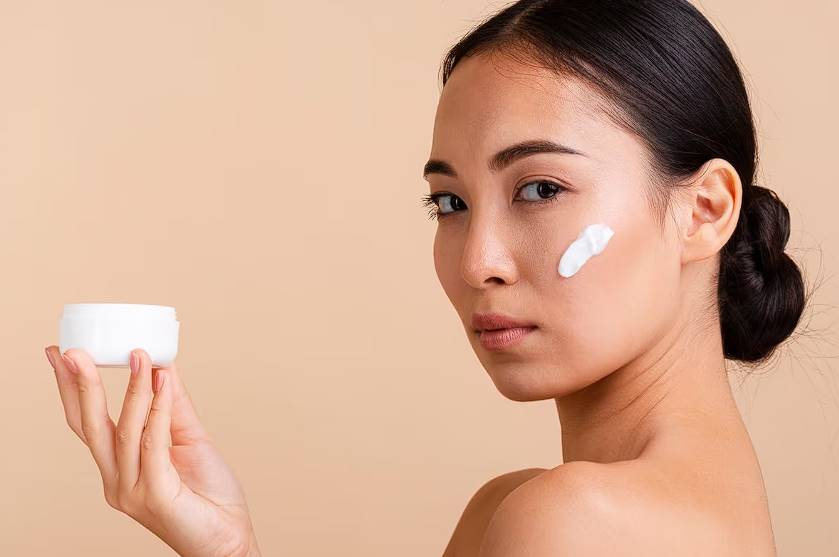
Finding Out What Type of Skin You Have.
Identifying your skin type is the first step to creating a customised skincare programme.
Using a Blotting Sheet
Blot your face gently. Display it in direct sunlight. You probably have dry skin if your face has little to no oil. If the sheet pulls up oil from your T-zone, you have a mixture of normal skin. If your skin absorbs oil from every area of your face, you most likely have oily skin.
No Makeup Approach
Use a gentle cleanser to wash your face, then pat it dry. After thirty minutes of being untreated, examine your nose, cheeks, and forehead for signs of shine. After another half an hour, observe how your skin feels and if it appears dry when you move or smile your face.
A taut sensation characterises dry skin, while combination skin is characterised by shine on the nose and forehead. Shiny facial areas, including the cheeks, nose, and forehead, are signs of oily skin.
Caring for Different Skin Types: Tailored Skincare Tips
Our skin also needs personalised attention as individuals with various needs and preferences. Whether you have dry, oily, combination, or sensitive skin, a personalised skincare routine may help you look healthy and vibrant. Let's look at the best ways to care for the various skin types.
Normal Skin Type
Balanced skin is normal skin. It is just the right amount of greasy and dry. The pH of normal skin is normal, and so is the sebum production.
How to Recognise Normal Skin?
- Even consistency
- Small pores
- Not sensitive
- Absence of imperfections
- Rare or minimal occurrences of breakouts
- Luminous and glowing tone
How To Take Care Of Normal Skin?
The question is straightforward: would you use insulin if you weren't diabetic? But that's no excuse to watch TV every night while eating a mountain of chips and a bag of Doritos.
Your skin is another organ that requires maintenance. If your skin is already healthy looking, you don't need an intensive skincare programme. However, you should prioritise your health, drink enough water, and have a simple skincare routine.
Although "normal" is often used as a skin type descriptor, no one has "normal" skin.
On the other hand, if your skin is neither very oily nor dry, and you aren't worried about signs of ageing, acne, or sensitivity, you have "balanced skin."
Follow these guidelines to keep your regular skin in top condition:
Keep Yourself Hydrated.
Dry, flaky skin might result from insufficient water throughout the day. Excess sebum production is another possible side effect.
Put On Sunblock
Wearing sunscreen regularly is essential for skin preservation. Skin exposed to the sun can become dry, wrinkly, and discoloured. To prevent the blocking of skin pores, use sunscreen that does not include oil.
Moisturise
All skin types require moisturising products. They prevent the skin from overproducing sebum by keeping it moist.
Before You Go To Bed, Remove Your Makeup And Wash Your Face
Even if you don't wear makeup every night before bed, you should cleanse your face. Pores can become blocked by environmental pollutants and germs.
Makeup can cause breakouts by blocking pores. To avoid this, remove it at the end of the day.
Oily Skin Type
An overproduction of sebum mainly causes excessive oiliness in the skin. This skin type exhibits an abundance of oil secretion, leading to a predominantly glossy, perspiring surface, and heightened susceptibility to acne, blackheads, and similar issues.
How to Spot Oily Skin?
- Shiny look
- Prominent or enlarged pores
- Susceptibility to breakouts
- Presence of blackheads and other imperfections
Why Does Your Skin Get Oily?
Hormone Fluctuations
Oily skin is a common symptom of hormonal imbalance, which can occur during adolescence or pregnancy.
Weather
Both climate and seasonality can influence oily skin. Living in a hot and/or humid climate might cause your skin to produce excess oil.
Genetic Factors
Take a good look at your surroundings. Does anyone in your family suffer from greasy skin? If you answered "yes," then you probably do as well.
Pore Size
Larger pores often produce more sebum.
Using Abrasive Soaps Or Excessive Exfoliation
What you may assume is helping your skin seem healthy and radiant may be doing the opposite. Exfoliating too frequently or aggressively might cause the skin to overproduce sebum. Oily skin can also be caused by harsh chemicals inappropriate for your skin type.
What Should You Do If You Have Oily Skin?
Always Use Moisturiser
You can keep your skin from overproducing sebum by moisturising it regularly. Selecting an appropriate moisturiser is crucial. Oily skin types should use a lightweight lotion as a moisturiser.
Keep yourself hydrated.
Drinking water hydrates your skin. This will keep your skin from over-secreting oil.
Double-Daily Face Washing Is A Must
The best way to prevent dirt and bacteria from clogging your pores is to wash your face twice daily. Avoid washing yourself to death. Washing too much can remove skin oils. This can lead to oilier, more easily irritated skin.
Beauty Routine
You should stay away from heavy, chemical-filled skincare products and chemicals. Makeup that will not clog your pores is called "non-comedogenic." Avoid harsh scrubs and cleansers. Before turning in for the night, thoroughly cleanse your face of all traces of makeup.
Keep Your Hands Off Your Face.
Acne and other skin imperfections are part of life if you have oily skin. However, you should avoid picking at your acne because doing so can spread the problem.
Dry or Dehydrated Skin Type
Insufficient moisture content within the skin can lead to a flaky and coarse surface, commonly known as dry skin. Dry skin typically generates lesser natural oils and lacks a vibrant quality. This skin type is prone to becoming parched and is sensitive to shifts in weather conditions.
How to Recognise Dry Skin?
- Flakiness and roughness
- Uneven skin texture
- Sensation of itchiness
- Skin experiencing tightness
- Enhanced visibility of lines
- Reduced skin elasticity
Why Does My Skin Get So Dry?
Genes
It's genetic: if everyone in your family has dry skin, yours will be dry too.
The Season
The lack of humidity in dry locations and throughout the winter makes the skin more prone to dryness.
Long Showers
Spending too much time in the shower can be drying since it strips the skin of its natural oils. This factor adds to skin dryness.
Getting Older
The skin produces less sebum as you get older. Itchy, flaky skin may develop from this.
What Should You Do If You Have Dry Skin?
- Keep your skin supple and nourished by moisturising it after every shower.
- Take short, frequent showers. Reduce your shower time and only do it twice a day.
- While you're drying off, be gentle with your skin. Be gentle when washing and drying.
- Water is essential for maintaining healthy skin.
- Humidifiers prevent skin dryness.
- Sunscreen protects your skin.
- Always use gloves when handling cleaning supplies.
Some soaps, cosmetics, and other skin care products have substances that might dry up your skin. Use only mild soaps and shampoos to avoid irritation, and never deodorant soaps.
Guide To Proper Skin Care
Whatever your skin type is, following these easy steps will safeguard your health and help you look radiant.
- Apply broad-spectrum sunscreen daily to protect your skin from harmful UVA and UVB radiation.
- Stay out of the hot, bright sunlight. Protect yourself by donning safety gear and eyewear.
- Be sure to drink enough water.
- Always be gentle when washing your skin. Makeup and other items with solid ingredients should be used sparingly.
- Maintain healthy skin by moisturising regularly.
- Consume plenty of raw foods, especially fruits and vegetables. Stay away from processed foods, sweets, and spicy foods.
- Get in your regular workouts, and you'll find that your stress levels decrease. Maintaining good health and cleanliness is a must.
The Role of Diet and Lifestyle in Skin Health
Maintaining healthy skin requires consider both internal and exterior aspects, including but not limited to nutrition and lifestyle.
Impact of Nutrition on Skin
An anti-aging diet rich in antioxidants, vitamins, and minerals can help. Fruits, vegetables, nuts, and fatty fish are great skin-nourishing foods.
Hydration Is Crucial
Keeping yourself well hydrated is crucial for skin health. Getting adequate water in your system might help you look better and feel better from the inside out.
Reduce Stress Through Sleep
Breakouts, inflammation, and a lacklustre appearance are side effects of sleep deprivation and chronic stress. Prioritise sleep and stress management with yoga or meditation.
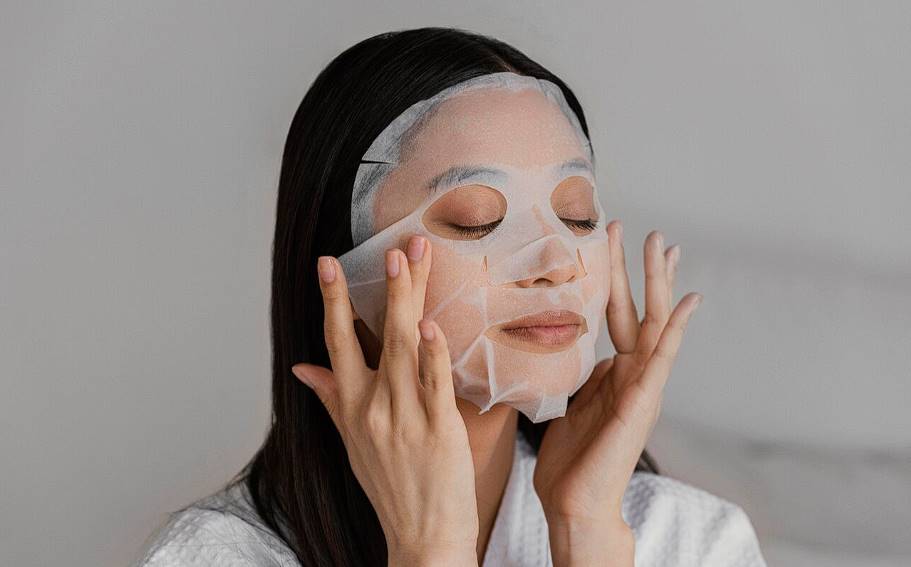
Embracing a Holistic Approach to Skin Care
If you want to care for your skin, you should do more than just use lotions and potions.
Incorporating Self-Care Practices
Taking care of yourself is essential to your health and happiness, and your skin's condition is no exception. Take a hot bath or meditate to alleviate tension and bring out the natural glow in your skin.
Seeking Professional Advice
While taking care of your skin at home is essential, consulting a dermatologist or esthetician for guidance tailored to your specific needs is worthwhile.
Integrating Mindfulness into Your Routine
Being mindful means giving complete attention to whatever is happening right now. By taking this stance, you may better enjoy your skincare routine and zero in on its health and skin benefits.
Conclusion
Know your skin type and create a routine for healthy, beautiful skin. Dry, oily, combination, normal, and sensitive skin types exist. Dry, flaky skin causes wrinkles and creases. Sebum makes oily skin shiny. Combination skin has dry and oily regions, necessitating a balanced skincare routine. Normal skin is hydrated, glowing, and flaw-free. Irritated sensitive skin reddens and swells.
A tailored skincare programme starts with skin type identification. Check dry and oily skin using a blotting sheet. A mild cleansing and no makeup can identify dry and mixed skin.
Hydrate, wear sunscreen, moisturise, and remove makeup before night to preserve normal skin. Prevents pimples and sebum overproduction. Health, hydration, and a simple skincare routine are important.
Oily skin produces too much sebum, making it shiny and prone to acne, blackheads, and other disorders. Hormones, climate, and genetics affect this skin type. Oily skin needs moisturiser, water, and a balanced beauty routine to avoid breakouts and blackheads.
Dry skin has flaky, gritty, uneven texture, irritation, tightness, increased line visibility, and diminished skin suppleness. It is drought-prone and weather-sensitive. Moisturise after every shower, take short, frequent showers, and use gentle soaps and shampoos to retain dry skin.
Apply broad-spectrum sunscreen daily, avoid hot sunlight, wear safety gear, drink enough water, wash and dry gently, and use soft cosmetics and products with solid components sparingly to preserve healthy skin. To relieve stress, eat raw, avoid processed, sugary, and spicy meals, and exercise often.
Healthy skin requires diet and lifestyle. Hydration and an anti-aging diet rich in antioxidants, vitamins, and minerals can benefit skin. Sleep deprivation and persistent stress can cause breakouts, inflammation, and dullness. Manage stress and sleep with yoga or meditation.
Holistic skin care encompasses self-care, professional advice, and mindfulness. Follow these suggestions for a healthy, bright complexion.
Content Summary
- The journey to beautiful, healthy skin goes beyond randomly applying cosmetics.
- Knowing your skin type and developing a personalised skincare routine is crucial.
- Whether you have oily, dry, sensitive, or mixed skin, tailoring your routine is essential.
- The comprehensive manual delves into all facets of skin care, from hydration to exfoliation, for flawless skin.
- The blog explores skincare routines, breaks down ingredient jargon, and reveals radiant skin secrets.
- Your habits, not just genetics, significantly influence your skin's appearance.
- Varying perspectives exist on skincare, from product reviews to professional advice.
- Ultimately, how you care for your skin comes down to personal preference.
- The blog emphasises the importance of understanding different skin types.
- Skin types include dry, oily, combo, regular, and sensitive, each requiring unique care.
- Dry skin lacks natural oils, leading to tightness, wrinkles, and needs moisture replenishment.
- Oily skin produces excess sebum, appears greasy, and is prone to acne outbreaks.
- Combination skin has dry patches and oily areas, often with a shinier T-zone.
- Normal skin boasts a healthy glow, proper moisture, and minimal flaws but still needs care.
- Sensitive skin becomes red and inflamed when irritated; requires mild, hypoallergenic products.
- Discover your skin type through blotting sheets and no-makeup tests.
- Effective skincare for normal skin includes hydration, sunblock, moisturising, and cleansing.
- Prioritise health even if your skin is naturally healthy-looking; opt for a simple skincare routine.
- Hormone fluctuations, weather, genetics, and pore size often cause oily skin.
- Oily skin care involves regular moisturising, hydration, and twice-daily face washing.
- Avoid heavy, chemical-laden products, opt for non-comedogenic makeup, and cleanse thoroughly.
- Refrain from picking at acne to prevent worsening the problem of oily skin.
- Due to low moisture, dry skin's hallmark is flakiness, roughness, itchiness, and tightness.
- Dryness can stem from genetics, weather, long showers, and aging factors.
- Manage dry skin by moisturising post-shower, taking shorter showers, and using gentle care.
- Embrace water, humidifiers, and sunscreen to combat dry skin.
- An overarching skincare guide advocates sunscreen, gentle washing, hydration, and a healthy diet.
- Proper nutrition with antioxidants, vitamins, and minerals supports anti-aging efforts.
- Adequate hydration promotes better skin health from the inside out.
- Sleep deprivation and stress impact the skin negatively; prioritise sleep and stress management.
Frequently Asked Questions
A skincare routine tailored to your skin type helps address specific concerns, maintain skin health, and prevent issues like acne, dryness, or excess oil.
Your skin type is typically oily, dry, combination, or sensitive. You can assess it by observing oiliness, tightness, and sensitivity.
Not necessarily. Different skin types have unique needs. Using products formulated for your skin type ensures optimal results and prevents exacerbating issues.
Ingredients like hyaluronic acid, retinol, antioxidants (like vitamin C), and peptides are beneficial for addressing aging concerns such as fine lines and loss of elasticity.
You may need to adjust your routine with changing seasons, age, or specific concerns. However, abrupt changes can disrupt your skin's balance, so adjust gradually.

